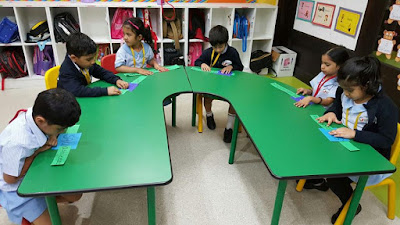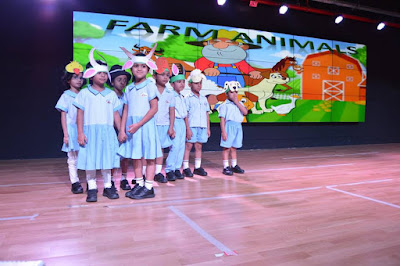Child safety is a paramount concern for parents especially
when their kids are away from home. Children spend most of their time at school
and hence, parents will be concerned on the level of safety and security that
is being provided by the school. Parents spend a lot of time and energy in
educating their children on what is considered safe and unsafe. It is not only
important for the children to differentiate between safe and unsafe, however,
it also important for the child to be able to interact within a safe
environment. Parents ensure that, the best safety and security precautions are
in place to ensure their child's safety within their supervisory context. Hence, it is the school's responsibility to
ensure that these measure are extended beyond the home and into the school and
classroom.
The first point of contact between the school and a GIIS
student is the bus on which they will be commuting to school. The safety of the
child within the school supervision begins on their school bus. Buses are regularly
checked to ensure that their safety is not compromised. This involves the
evaluation of the bus tires and brakes. In order to operate as a transportation
medium for school children, operators must adhere to certain codes that is
dictated by ADEC - the government institution that oversees education in the
emirate of Abu Dhabi. All buses are GPS enabled allowing schools and parents to
track bus movement. In addition to GPS tracking, buses are also equipped with
multiple CCTV's which can be accessed remotely from the school giving
supervisors a live view. As government regulation, all school buses are
equipped with well trained and qualified Nannies who acts as a link between
parents, school and transportation company. The nannies are also responsible to
ensure the child's safety onboard. Once the student boards the bus, they will
be required to scan their ID which is equipped with an RFID tag. This scanning
happens twice on each trip - one for boarding and the other while leaving the
bus.
When students reach the school, attendance will be taken,
and an instantaneous message will be sent out to parents if their child is
marked absent. This is done as a precautionary measure to ensure that the
parents are aware their child is not at school.
Surveillance camera's that operate 24*7 are installed in all
areas of the school. The cameras allow the monitoring of movement within the
school. Any unusual activity can be easily detected by the Security team by
remotely monitoring these cameras. The school also has trained and certified
security guards who are on duty 24 hours, 7 days a week. They also ensure that
no person gains unauthorized access inside the school.
The school is also fully child proofed with padding for
furniture and objects with sharp edges. Doors also proofed to avoid students
jamming their fingers. Fifteen percent of employees at GIIS are trained as
first respondent in case of an emergency.
GIIS Abu Dhabi also conducts regular training and drills on fire safety
and evacuation.
The school is also inspected on a regular basis to ensure
that all safety regulation are implemented and adhered.







